Over time, the teencode of the 80s and early 90s generations seemed to have faded into the past, but recently, the use of "slightly strange" language by Gen Z is becoming a trend, bringing to mind the "legendary teencode" of the past.

Teencode is a unique type of writing used by young people, encoded according to rules they themselves have established. Many use teencode to express their individuality, and conversely, teencode helps them easily integrate with their peers. Furthermore, this type of code makes young people feel free, avoiding parental control, especially during their rebellious teenage years.
Millennials (those born in the 80s and early 90s) probably still remember the days of texting each other all night long using Nokia 1280 phones, jokingly called "brick phones." The teencode that young people used was...trendWhat seemed like a thing of the past has recently become a trend, reminiscent of the once-popular "teencode" slang. So, is Gen Z bringing teencode back?

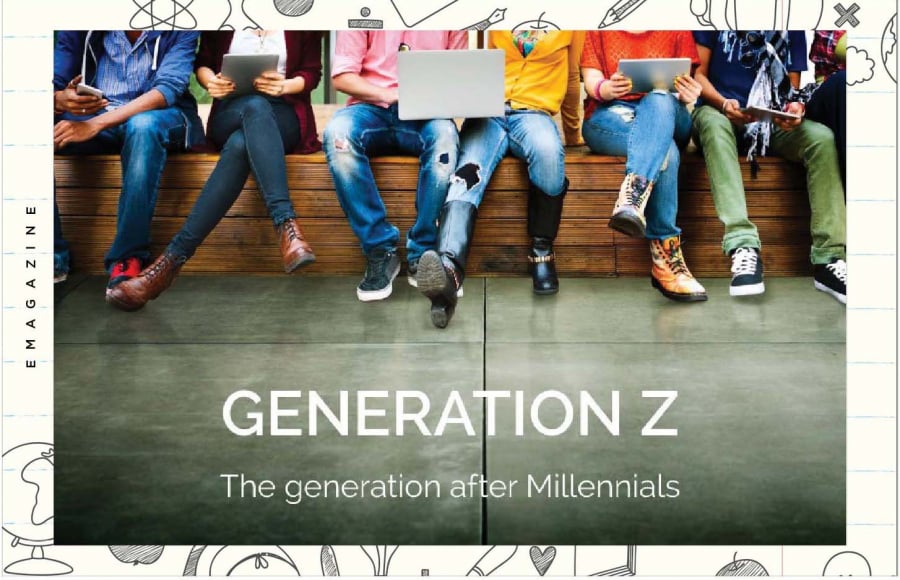
Generation Z (Gen Z) refers to young people born between 1995 and 2012. Besides Gen Z, this generation is also known by many other names such as Gen Tech, Net Gen, Plurals, Zoomers, Internet Generation, iGen, iGeneration, Gen Wii, Digital Natives, Neo-Digital Natives, Founders, Homeland Generation, Post-millennials, or post-Millennials…
Gen Z is considered the first generation to be born and raised fully in the digital age. They are hailed as citizens of the digital age, possessing a mindset about money and economics, and are expected to be the "captains" in the process of changing and building a developed world in the future.

First appearing in Vietnam before 2000, teencode was used as a form of encoding letters into numbers. However, teencode only truly exploded after 2000 when more and more young people owned "brick" phones, especially the Nokia 1280 with its T9 (Text on 9 keys) keyboard. They used teencode in every conversation and text message every day.
For example, to replace the letter "i", users would use the letter "j", or the word "love" would be shortened to "êu", "texting" to "nt", "wife/husband" to "vk/ck"...
When the internet became widespread in Vietnam, teencode dominated almost all social media platforms. Around 2018, the teencode craze began to cool down as the Millennial generation matured, and standard text formatting regained popularity.
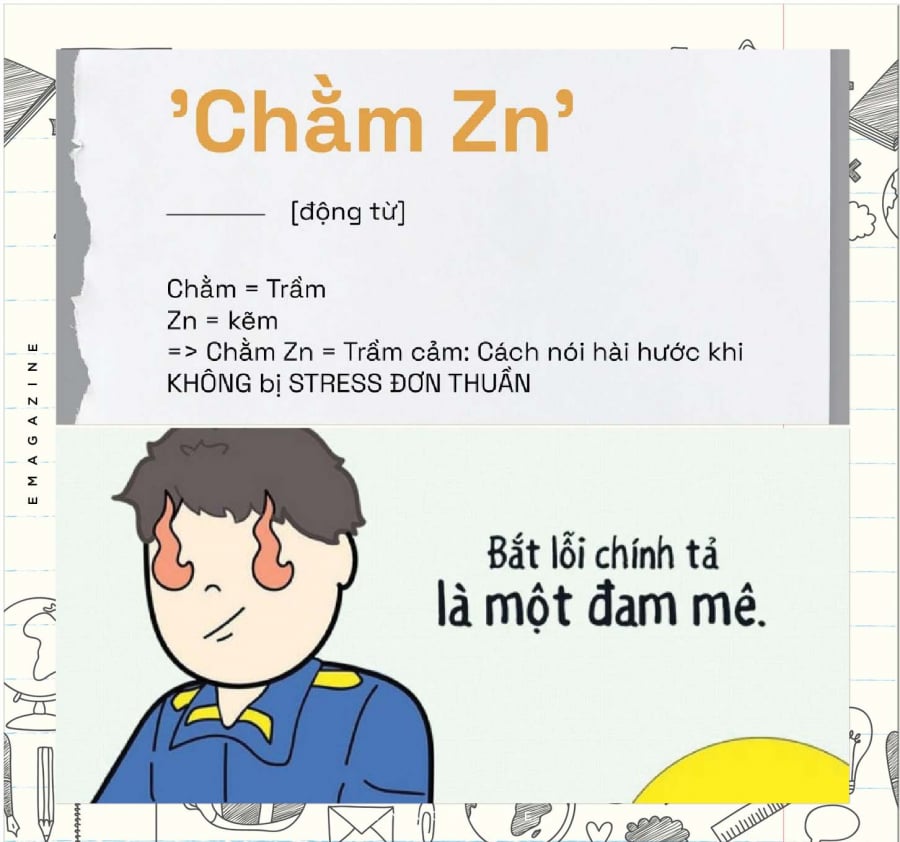
These "spelling police" began to emerge and become a trend around this time. This group of people followed all the spelling rules to the point of being meticulous and often pointed out spelling and grammatical errors in others' work.
Social media has seen statements like, "Arguing with spelling mistakes renders any logic meaningless." At the same time, groups and communities dedicated to correcting spelling errors have emerged, such as the "Spelling Police" fan page with over 79,000 likes and more than 83,000 followers.

For almost a year now, teencode has become popular. This resurgence is largely thanks to Gen Z. However, Gen Z-style teencode has a completely different look from teencode of the past.
Instead of establishing common conventions between letters, numbers, and symbols, Gen Z's teencode utilizes slang, mispronunciation, or foreign pronunciations from languages like English, Korean, Thai, and Chinese to form Vietnamese words.
For example: "thơ" (poetry) would be written as "ther", "không" (no) as "khum", "cuộc sống" (life) would become "cột sống" (spine), "chếc gòi" (dead), "gòi song" (finished),...

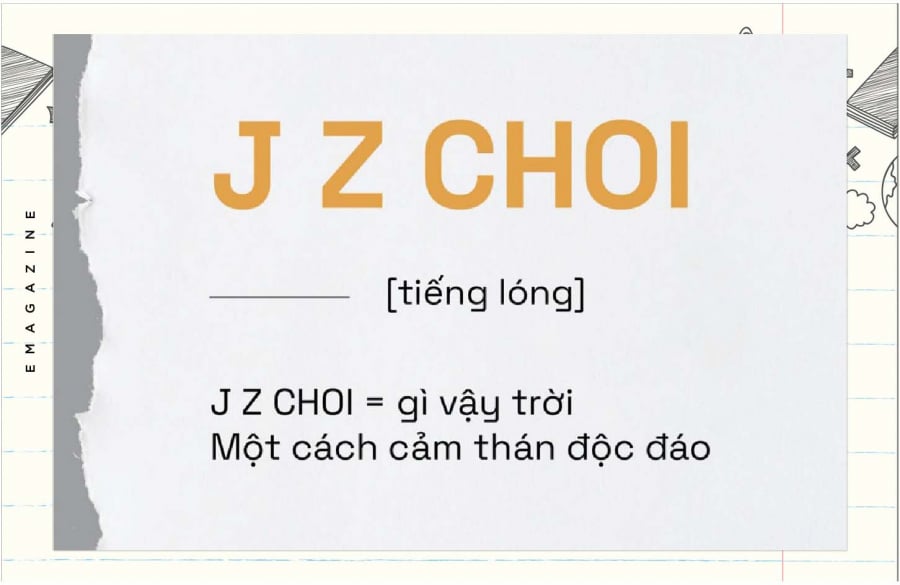
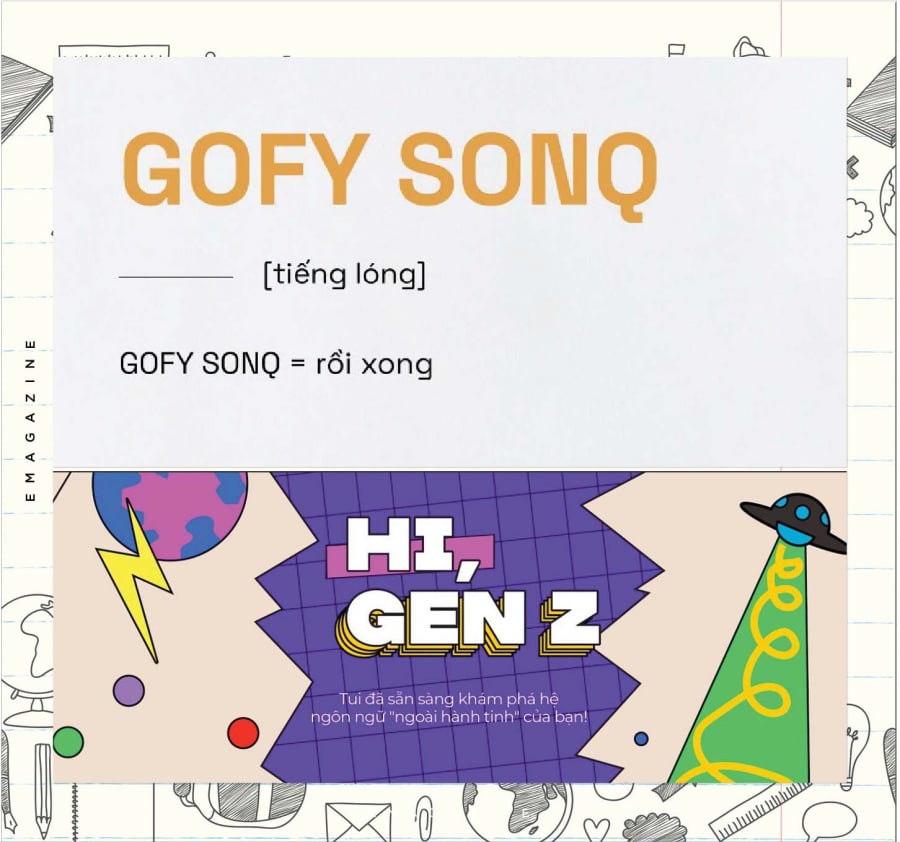
Just like previous generations, today's youth use slang and internet abbreviations to express their unique identities—humorous, creative, and unconstrained by any rules or standards. Thanks to social media, Gen Z's distinctive language has also spread widely.
That's not to say Gen Z ignores spelling rules. They are still very precise in their writing style and vocabulary, but on social media platforms, they have created their own "language," largely for entertainment purposes.
So, is using teencode (internet slang) bad?
The use of teencode by young people from "the old days" has sparked much debate. However, teencode should be evaluated from multiple perspectives.
In fact, many older people tend to be more critical of young people's use of slang/internet jargon.
They argue that teenage slang diminishes the purity of the Vietnamese language: "It's sad for the Vietnamese language used by today's students. Texting someone who doesn't understand it is a failure in communication." (Shared by PN)
Or they consider the use of slang/internet jargon by young people towards adults as disrespectful: "If it's just casual communication between friends, it's fine. But the problem is that using it to communicate with older generations is disrespectful (because most of them would have difficulty understanding this language)." (Shared by Mr. M.)
On the other hand, many people argue that teencode is a creation of young people and should be viewed and evaluated fairly.
"Many people are very conservative and dogmatic. Young people should be encouraged and motivated to be creative, but instead, they stubbornly cling to the old ways. I have the feeling that Vietnamese people are very afraid of change and always accept the status quo." (Shared by LVH)
TA shared: "Young people should do what they like, but remember to do it in the right place, at the right time, and without harming anyone."
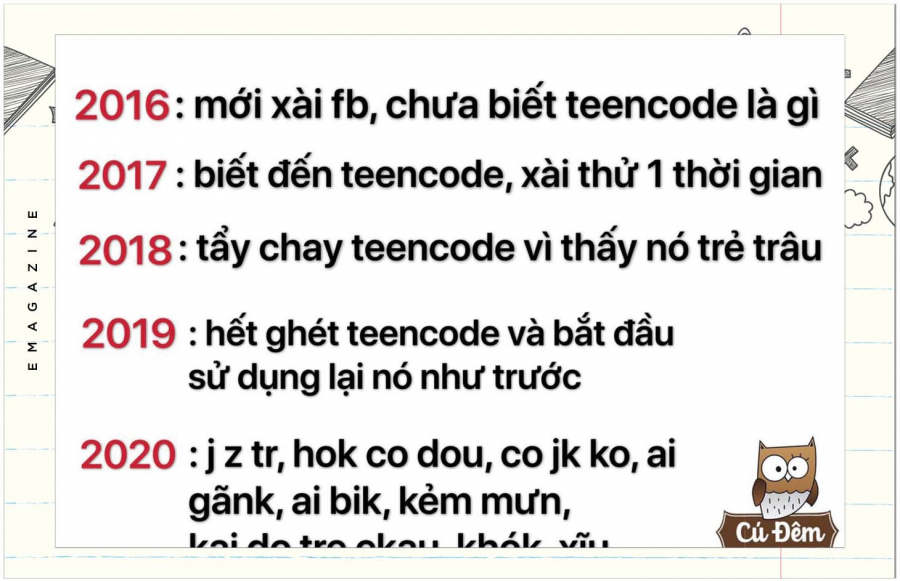
From a linguistic research perspective, Associate Professor Pham Van Tinh, Secretary General of the Vietnam Linguistics Association, commented: "To some extent, teencode has a positive meaning. The unusual way of writing creates interest, cuteness, and humor in communication, helping to make the Vietnamese language more diverse."
In fact, teencode is also a form of jargon that makes it easier for young people to communicate, express their thoughts and feelings, and even relieve stress, making life more lively. However, the Associate Professor advises young people not to overuse teencode when communicating, especially with older people, in work or serious conversations.
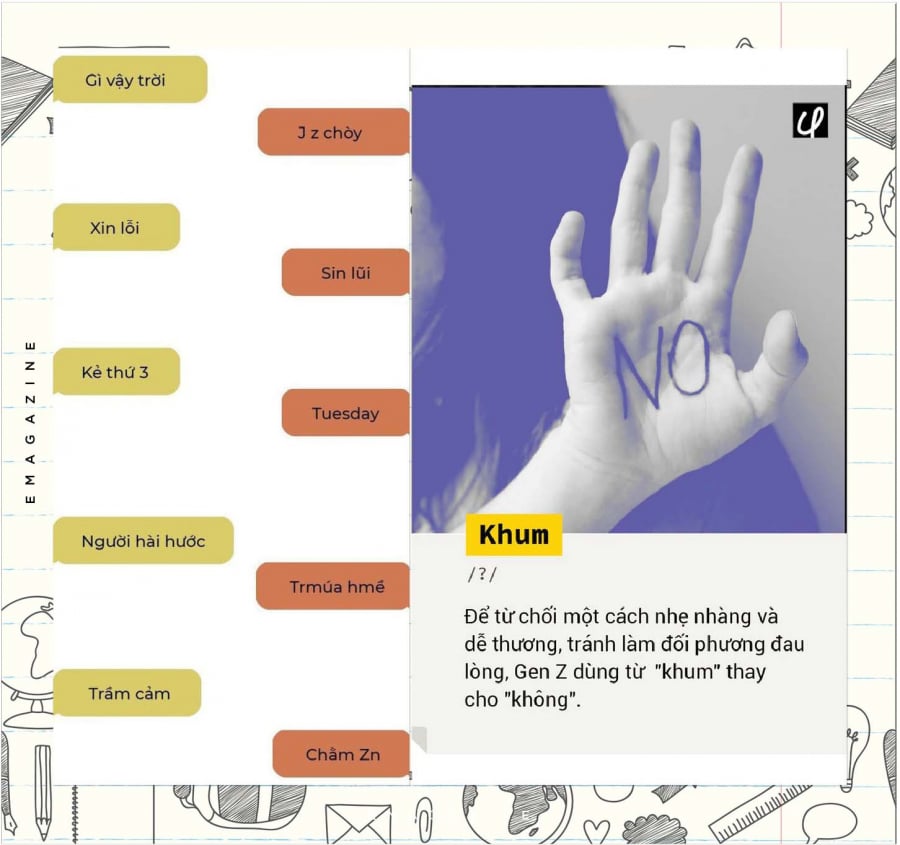
For those who were "experienced" using teencode a decade ago, reading the Gen Z "dictionary" will surely shock them with the unpredictable transformation of the language. They will somewhat recognize their "old selves" in this language. They understand that teencode only provides temporary satisfaction, that it will fade over time, but it is undeniable evidence of their rebellious youth.
And one thing is certain: later, when Gen Z grows up, they will have many funny stories to tell, thanks to which they will understand how they grew up from their youthful impulsiveness – just like how Millennials have gone through and are still going through.
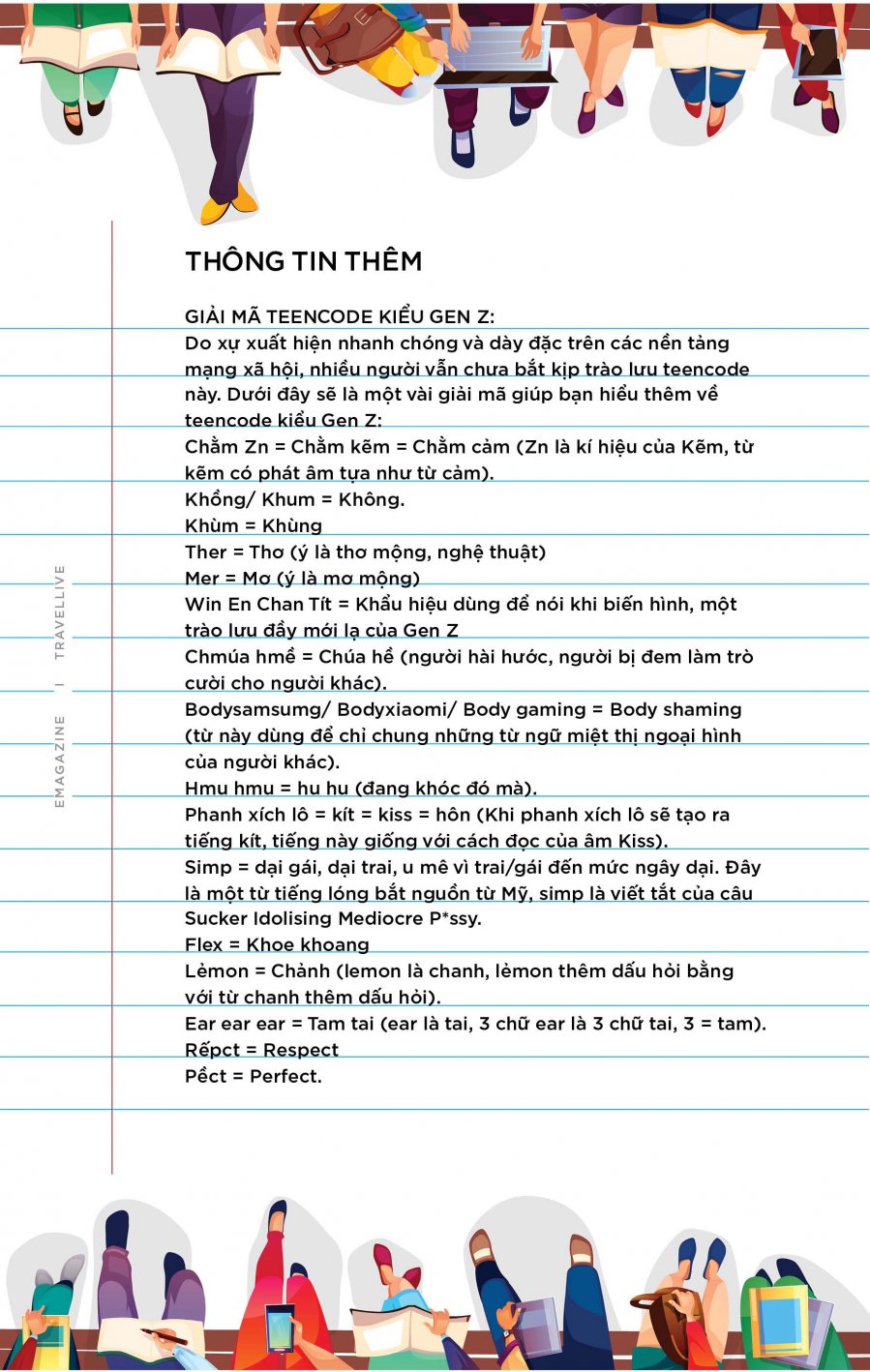


 VI
VI EN
EN












